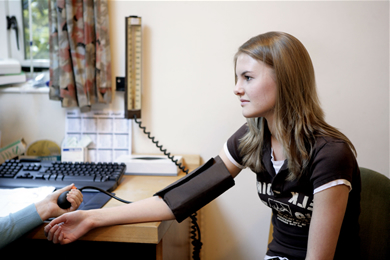Practical Approaches to Improving Adherence and Concordance course for GPs



This session explores ways to develop strategies to help young people and their families to follow agreed treatment regimes. The session features general ideas, as well as specific practical tips, and includes video clips.
Learning objectives
By the end of this session you will be able to:
- Take a history of non-adherence
- List six different practical strategies for enhancing adherence
- Identify other people or agencies who can help the young person achieve better adherence
- Identify approaches to engage with young people and parents
By now, you should be aware of the most common reasons for non-adherence. Non-adherence is normal, and a young person needs the support of their family, friends and healthcare team to get the best from their medication. This session will offer you some practical tips to maximise the adherence of young people to medicines and other therapies.
- 07_001 Adherence and Concordance in Young People (401-0032)
Prior to her recent retirement Marcelle de Sousa was an Adolescent Nurse Specialist in the Adolescent Unit at University College Hospitals in London. She has been involved in transitioning young people to adult services since 1986 when she was a paediatric renal nurse. She was the chair of the Adolescent Health Forum of the RCN and the regional member of the London Board of the RCN. Marcelle has been a member of the Children’s Health Alliance Adolescent subgroup and was one of the Department of Health Transition Champions.


Terry Segal is a consultant in general and adolescent paediatrics at University College Hospital, London. She is the adolescent lead as well as unit training director for paediatrics in UCLH. She is sub-speciality trained in paediatric and adolescent endocrinology, as well as some specific psychological training. Her interests include chronic fatigue and chronic pain syndromes, psychosomatic illness, medical management of anorexia and underweight and obesity. She has published research in the areas of obesity and pubertal delay amongst others.
- Assessment course for GPs
- Posted By eIntegrity Healthcare e-Learning
- Posted Date: 2025-01-09
- Location:Online
- This session describes the main tools used to assess trainee GPs and distinguishes between formative...
- Self Appraisal course for GPs
- Posted By eIntegrity Healthcare e-Learning
- Posted Date: 2025-01-09
- Location:Online
- This session describes an approach to self-appraisal, and provides practical tips and guidance about...
- Telephone Consultations course for GPs
- Posted By eIntegrity Healthcare e-Learning
- Posted Date: 2025-01-09
- Location:Online
- This session explores the issues that may arise when a consultation is conducted over the telephone,...
- Difficult Consultations course for GPs
- Posted By eIntegrity Healthcare e-Learning
- Posted Date: 2025-01-09
- Location:Online
- This interactive session explores some of the difficulties associated with patients whose behaviour ...
- Balint's Ideas course for GPs
- Posted By eIntegrity Healthcare e-Learning
- Posted Date: 2025-01-09
- Location:Online
- This session introduces Michael Balint, outlines his principal ideas and describes his innovative us...






